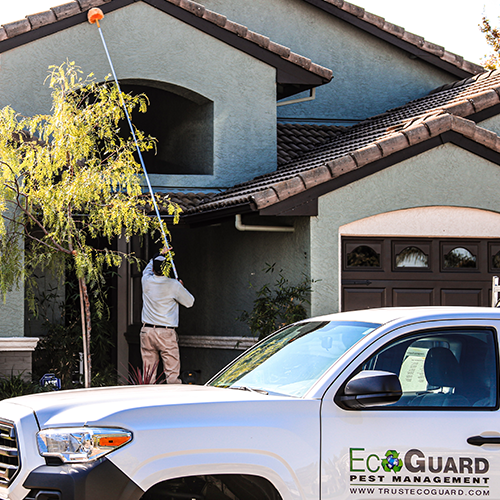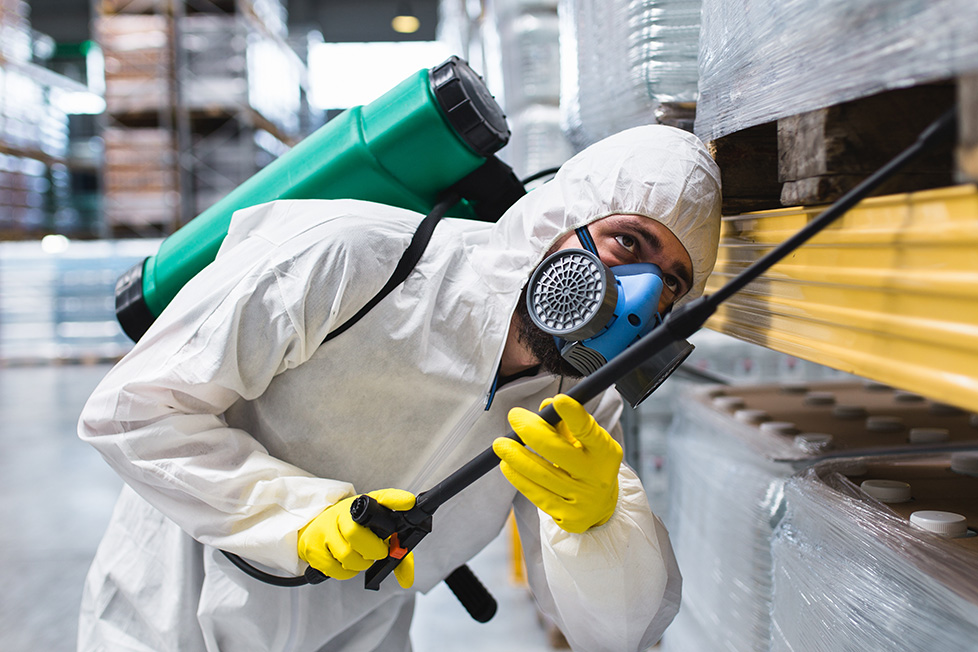Custom-made Pest Control Homestead Program for Optimum Defense
Custom-made Pest Control Homestead Program for Optimum Defense
Blog Article
Ultimate Overview to Parasite Control: Types, techniques, and advantages
Insect control is an important facet of maintaining a healthy and risk-free environment, whether it be in domestic, commercial, or agricultural settings (Pest Control Homestead). Recognizing the benefits, methods, and types of pest control approaches can dramatically influence the efficiency of insect administration methods. By exploring the diverse series of strategies offered, one can tailor insect control initiatives to certain requirements and difficulties, making certain a lasting and detailed solution. The globe of insect control is complex, with different devices and approaches at one's disposal.
Value of Insect Control
Pest control plays a vital role in keeping the health and wellness and safety and security of both commercial and domestic atmospheres. By effectively taking care of and eradicating individuals, bugs and businesses can stop the spread of conditions, secure residential property from damages, and make certain a hygienic and tidy living or functioning area. Insects such as pests, termites, and rats can posture serious health threats to humans and pets by contaminating food, sending illness, and creating sensitive responses. Furthermore, bugs can trigger architectural damages to buildings and framework, causing costly fixings and possibly compromising the safety of owners.
Applying regular parasite control measures not only safeguards the physical health and wellness of people but also adds to their mental well-being by developing a safe and secure and comfy environment complimentary from the annoyances and disturbances created by parasites. In commercial setups, pest control is necessary for keeping a positive credibility, complying with health and safety and security laws, and protecting the wellness of customers and staff members. Generally, the importance of pest control can not be overstated in protecting the health, safety, and general lifestyle in both property and industrial spaces.
Usual Pest Control Strategies
Provided the crucial duty that pest control plays in securing wellness and building, it is necessary to check out effective approaches for managing and removing pests. Typical insect control techniques include an array of techniques customized to specific parasite types. Physical approaches entail using barriers, webs, or catches to avoid parasites from going into or to capture them. Organic control utilizes natural predators or microorganisms to manage parasite populations, minimizing the requirement for chemical interventions. Chemical control, such as pesticides, is widely used but requires cautious application to minimize ecological effect. Furthermore, incorporated insect monitoring integrates numerous approaches to accomplish long-lasting insect suppression while reducing dangers to human wellness and the environment. Cultural strategies, like correct waste management and preserving cleanliness, also play a vital role in insect prevention. Inevitably, the most efficient pest control method commonly entails a combination of strategies personalized to the specific pest varieties and the environment in which they live.

Organic Pest Control Techniques
When considering environmentally-friendly approaches to managing pest populations, organic insect control techniques provide a sustainable service. One common natural bug control technique is biological control, which entails introducing all-natural predators, parasites, or pathogens to regulate bug populations.
An additional efficient organic parasite control technique is using natural pesticides stemmed from natural resources such as minerals, microorganisms, or plants. These chemicals target particular bugs while decreasing damage to useful pests and the ecological community. Neem oil, as an example, is a prominent organic chemical that interrupts the growth and recreation of numerous parasites without triggering injury to other microorganisms.
Cultural practices like crop turning, friend growing, and keeping correct plant health and wellness additionally fall under organic bug control methods. By decreasing and producing a well balanced ecological community parasite susceptabilities, these techniques aid prevent pest infestations without the requirement for hazardous chemicals. Organic parasite control approaches not only safeguard the setting but also promote lasting and lasting parasite administration services.
Kinds Of Bug Control Services
Taking into consideration the diverse methods readily available for taking care of parasite populaces, a key facet to explore following is the variety of services supplied under the umbrella of insect control. Bug control services can be generally categorized right into three primary kinds: residential insect control, industrial parasite control, and incorporated parasite administration (IPM)
Residential parasite control services focus on managing and eliminating bugs frequently discovered in homes, such as ants, roaches, rodents, and termites. These solutions frequently entail the application of risk-free yet efficient therapies to protect the health and wellness of locals.

Integrated Pest Monitoring (IPM) takes a holistic approach to my review here pest control by integrating organic, cultural, physical, and chemical techniques to handle insect populations properly while minimizing risks to human wellness and the environment. IPM concentrates on long-lasting prevention and lasting bug monitoring techniques.
Integrated Bug Administration Approach
An integrative method to pest administration, called Integrated Pest Monitoring (IPM), integrates various approaches to efficiently manage pest populations while reducing risks to human health and the setting. Pest Control Homestead. IPM focuses on preventing pests via a combination of organic, cultural, physical, and chemical control approaches. By using a holistic method, IPM intends to resolve the origin triggers of insect infestations instead of simply dealing with the symptoms
One secret facet of IPM is the usage of biological controls, such as introducing all-natural killers or microorganisms to manage bug populaces. This technique reduces the reliance on chemical pesticides, therefore reducing the overall ecological influence. Social controls include changing the pest's habitat to make it much less congenial, while physical controls consist of using catches or barriers to omit or catch pests.
IPM likewise stresses surveillance and routine examination to assess insect levels properly and establish the most ideal control techniques. By incorporating these varied approaches, IPM supplies a efficient and sustainable approach to pest management that promotes long-term solutions while securing human health and wellness and the ecosystem.

Verdict
Finally, parasite control is important for preserving a healthy and safe environment. By utilizing numerous strategies such as natural techniques and integrated insect management, people can effectively stop and handle parasite infestations. Various sorts of pest control services are readily available to accommodate specific requirements and preferences. On the whole, carrying out proper bug control procedures can help shield property, plants, and my sources human wellness from the dangerous effects of insects.
Recognizing the benefits, techniques, and types of bug control methods can substantially impact the efficiency of bug administration techniques. Typical parasite control strategies incorporate a range of techniques customized to particular bug types. One typical natural insect control approach is organic control, which entails presenting all-natural predators, parasites, or microorganisms to control pest populations.An integrative method to pest management, known as Integrated Bug Administration (IPM), incorporates numerous approaches to efficiently control pest populations while lessening threats to human health and the environment. Social controls involve changing the bug's environment to make it much less friendly, while physical controls include the use of catches or barriers to omit or catch pests.
Report this page